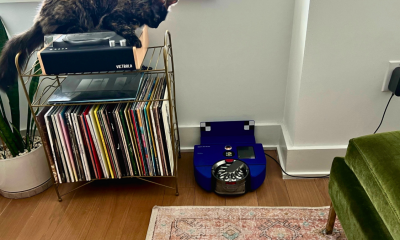Business
Latin America Roundup: XP’s chart-topping IPO, Wildlife becomes a unicorn, SoftBank backs Konfio

December has been a strong month for Brazilian startups, bringing a big IPO and a new unicorn for local companies. Tech-driven investment firm XP Investimentos went public on the U.S. Stock Exchange in mid-December, raising $1.81 billion in the fourth-largest IPO of 2019. XP’s stock price jumped 30% on its first day of trading, from $27 per share to $34.50.
XP was founded in 2001 to provide brokerage training classes to Brazilians to help them invest in the international stock market. Today, it is a full-service brokerage firm, providing fund management and distribution to more than 1.5 million customers in Brazil.
Notably, XP has outlined a strategy for beating Brazilian banks, among the most profitable in the world, in its 354-page report to the SEC. Brazil’s banking market is highly concentrated, with the top five players dominating 93% of market share. This concentration has led to significant inefficiencies that XP tries to disrupt by offering a variety of financial products through an accessible online platform.
The heavy bureaucracy of these banks will prevent them from innovating quickly enough to compete with newer institutions like XP, whose debt products are attractive to frustrated Brazilian customers. The inefficiency of the Brazilian financial system has opened opportunities for companies like XP, or neobank Nubank, to rapidly attract customers who are disgruntled with the traditional system.
Gaming startup Wildlife becomes a unicorn
Brazil has seen a new unicorn emerge almost every month this year, and December was no exception. Gaming startup Wildlife raised a $60 million Series A round led by U.S.-investor Benchmark Capital at a $1.3 billion valuation to become the country’s eleventh unicorn. This round was big even for Silicon Valley standards, and it is uncommon for startups even in markets like the U.S. or Europe to hit a $1 billion-plus valuation in such an early round.
Wildlife has created more than 60 games since 2011, including Zooba and Tennis Clash, which have both reached global acclaim. Founded by brothers Victor and Arthur Lazarte, Wildlife operates on a freemium model that only charges users for in-app purchases. They plan to use the funding to double their employee base and grow to $2 billion in 2020, continuing the 80% yearly growth they have seen since 2011.
Mexico’s lender Konfio receives $100 million from SoftBank
Konfio provides small business loans in Mexico through an online platform to help SMEs gain liquidity and grow their operations. These small businesses are often overlooked by banks in Mexico and Latin America, which do not know how to price risk for businesses that process less than $10 million per year.
Konfio recently raised $100 million from SoftBank’s Innovation Fund, the third investment that SoftBank has made into Mexico since launching the fund. The capital will go toward financing working capital loans, as well as creating new products for Konfio’s customers. Today, Konfio’s loans average around $12,000, while banks still struggle to loan less than $40,000. The tech-driven platform allows Konfio to disburse loans within 24 hours without requiring collateral.
Small business lending is a tremendous opportunity in Latin America, where banks are among the most profitable and the least competitive in the world. Brazil’s Creditas and Colombia’s OmniBnk are among the other startups providing innovative products that calculate risk more effectively than banks in Latin America’s complex lending environment.
Albo, Mexico’s leading neobank, raises $19 million
In an extension of a Series A round, Mexico’s albo raised a further $19 million from Valar Ventures to bring their newest round to $26.4 million in total. Albo previously raised $7.4 million from Mountain Nazca, Omidyar Network and Greyhound Capital in January 2019. Albo’s mission is to provide banking services to unbanked and underbanked clients in Mexico. More than half of albo’s customers claim that albo was their first-ever bank account.
Founded by Angel Sahagun in 2016, albo quickly became Mexico’s largest neobank, serving more than 200,000 customers and sending out thousands of new cards every day. The investment from Valar Ventures, founded by Peter Thiel (also an investor in N26 and TransferWise), is a vote of confidence for this Mexican fintech. Albo has also previously received investment from Arkfund, Magma Partners and Mexican angels.
Albo plans to use the capital to develop new products, including savings and credit services, in the coming year. Mexico will likely be a battleground for Latin American neobanks in 2020, as Klar, Nubank and potentially Argentina’s Uala will begin to grow in the region’s second-largest market. While there is room for several competitive neobanks to thrive in Mexico, this industry will be one to watch in 2020.
News and Notes: Mercado Credito, Mimic, Rebel and Rappi
Goldman Sachs loaned $125 million to MercadoLibre to continue developing their credit product, MercadoCredito. MercadoLibre will use the capital to triple its $100 million debt facility for small business loans in Mexico. To date, MercadoCredito has loaned more than $610 million to 270,000 businesses around the region in Mexico, Brazil and Argentina.
Brazilian cloud-kitchen startup Mimic raised $9 million in a seed round led by Monashees to develop a more efficient food delivery model in Brazil. Mimic will exclusively manage the logistics of “dark kitchens,” which exist only for delivery and have no sit-down facilities, saving time and money for clients. Mimic will use the investment to grow its team.
An early-stage online lending startup in Brazil, Rebel, recently raised $10 million from Monashees and Fintech Collective to provide unsecured loans to middle-class Brazilians at affordable rates. Rebel has lowered rates to around 2.9% per month, compared to 40-400% at Brazil’s largest banks. The startup uses a proprietary algorithm to calculate risk for clients and provide loans rapidly through its online platform.
Colombia’s Rappi recently announced an expansion into Ecuador, where it has rapidly reached 100,000 users between Quito and Guayaquil, the country’s two largest cities. Rappi is now active in nine countries and more than 50 cities in Latin America.
2019: A Year in Review
Given the arrival of the SoftBank Innovation Fund, Latin American startup investment in 2019 will likely more than double the $2 billion invested in 2018. Here are a few of the highlights we saw this year:
- Record-breaking rounds and Brazilian unicorns: In 2019, Rappi raised $1 billion from SoftBank, beating iFood’s previous record-breaking $500 million from Naspers in 2018. Brazil got at least six new unicorns — Nubank, QuintoAndar, Gympass, Wildlife, Loggi and EBANX — most of whom raised funding from international investors.
- Asian investment in Latin American fintechs: Nubank received $400 million-plus in 2019 from investors that included TCV, Tencent, Sequoia, Dragoneer and Ribbit Capital. Argentina’s Uala received $150 million from SoftBank and Tencent in November 2019. SoftBank has been investing in Brazilian and Mexican fintechs including Creditas, Konfio and Clip, throughout the year.
- U.S. investors take an interest in LatAm: Many U.S. investors made their first Latin American investments in 2019, including Valar Ventures (albo), Bezos Expeditions (NotCo), SixThirty Cyber (Kriptos) and Homebrew (Habi). This year has also seen large funds like a16z, Sequoia, Accel and others making earlier-stage investments in Latin America, rather than Series B and beyond. This change demonstrates that U.S. funds are becoming more familiar and involved with the Latin American ecosystem, helping early-stage companies grow rather than focusing on international scale-ups as they have in the past.
- The Cornershop acquisition: Chilean-Mexican delivery startup, Cornershop, was acquired by Walmart in late 2018 for $225 million, but the deal was blocked by the Mexican government. Four months after the block, Cornershop announced that Uber would take a 51% share of the company for $450 million, representing a 4x growth in valuation since the previous acquisition deal. The Mexican and Chilean governments still have to approve the Uber deal, so all eyes will be on Cornershop through the start of 2020.
- The start of the battle for Latin America’s super-app: In China, two companies dominate the mobile market, handling payments, communications, ridesharing, delivery and more within a single app. Events in 2019, such as Rappi’s $1 billion round and the merger between Mexico’s Grin and Brazil’s Yellow, suggest that Latin America may be heading in the same direction toward a few apps that integrate dozens of features. Colombia’s Rappi and Brazil’s Movile are strong competitors for the role, but the rise of a regional super-app still remains far in the future for Latin America.
Latin America’s startup and investment ecosystem has likely more than doubled this year as compared to 2019. As international investors like SoftBank, Andreessen Horowitz, Sequoia, Accel, Tencent and others are taking more bets on the region, more startups than ever have scaled and reached unicorn status. These startups will continue to scale in 2020, taking on a regional presence to provide services to Latin America’s 650 million population.
-

 Business5 days ago
Business5 days agoAPI startup Noname Security nears $500M deal to sell itself to Akamai
-

 Business6 days ago
Business6 days agoUS think tank Heritage Foundation hit by cyberattack
-

 Entertainment5 days ago
Entertainment5 days agoNASA discovered bacteria that wouldn’t die. Now it’s boosting sunscreen.
-

 Entertainment5 days ago
Entertainment5 days agoHow to watch ‘Argylle’: When and where is it streaming?
-

 Business4 days ago
Business4 days agoTesla drops prices, Meta confirms Llama 3 release, and Apple allows emulators in the App Store
-

 Entertainment4 days ago
Entertainment4 days ago‘The Sympathizer’ review: Park Chan-wook’s Vietnam War spy thriller is TV magic
-

 Business3 days ago
Business3 days agoTechCrunch Mobility: Cruise robotaxis return and Ford’s BlueCruise comes under scrutiny
-

 Entertainment5 days ago
Entertainment5 days agoDyson 360 Vis Nav robot vacuum review: Dyson should just stick to upright vacuums





















